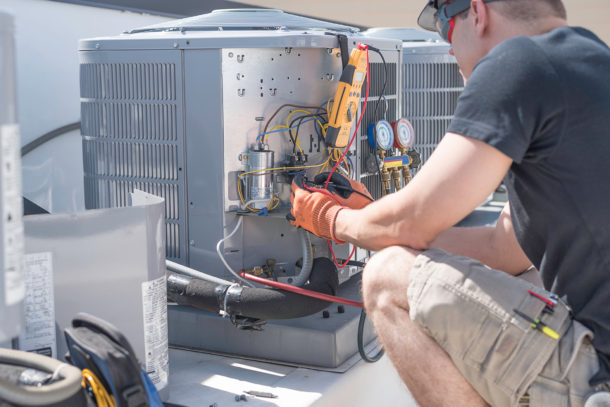Introduction to HVAC Systems
When it comes to ensuring comfort in residential or commercial spaces, HVAC (Heating, Ventilation, and Air Conditioning) systems play a pivotal role. These systems are not just about maintaining the temperature; they encompass a range of functions designed to create a conducive indoor environment.
What Does HVAC Stand For?
HVAC stands for Heating, Ventilation, and Air Conditioning. This acronym encompasses the three main functions of these systems, which are:
- Heating: This involves the process of generating warmth to maintain a comfortable indoor temperature during colder months.
- Ventilation: Ventilation refers to the exchange of indoor and outdoor air to improve air quality and remove pollutants.
- Air Conditioning: Air conditioning involves the process of cooling indoor spaces during warmer months to maintain a comfortable temperature.
Components of an HVAC System
Heating Components
Furnace
The furnace is the heart of the heating system in an HVAC setup. It works by heating air and distributing it throughout the building via ductwork or vents.
Heat Pump
Heat pumps are another common heating component in HVAC systems. They transfer heat from one location to another, either extracting heat from the outside air (air-source heat pump) or the ground (ground-source heat pump).
Ventilation Components
Air Ducts
Air ducts are pathways that allow air to circulate throughout the building. Properly designed and maintained ductwork is essential for efficient ventilation and air distribution.
Ventilation Fans
Ventilation fans help to exhaust stale indoor air and bring in fresh outdoor air. They are commonly found in bathrooms, kitchens, and other areas prone to moisture buildup and poor air quality.
Air Conditioning Components
Compressor
The compressor is the main component of the air conditioning system. It compresses refrigerant gas, raising its temperature and pressure before it enters the condenser.
Condenser Coil
The condenser coil helps dissipate heat from the refrigerant gas, causing it to condense into a liquid state.
Evaporator Coil
The evaporator coil absorbs heat from indoor air, causing the refrigerant to evaporate and cool the air in the process.
How HVAC Systems Work
HVAC systems work by controlling temperature, humidity, and air quality to create a comfortable indoor environment. Here’s a brief overview of how these systems operate:
- Thermostat Control: The thermostat serves as the control center for the HVAC system, allowing users to set their desired temperature.
- Heating or Cooling: Depending on the temperature setting, the HVAC system will either activate the heating or cooling components to adjust the indoor temperature accordingly.
- Air Circulation: Once the air is heated or cooled, it is circulated throughout the building via the ductwork or vents.
- Ventilation: In addition to heating and cooling, HVAC systems also provide ventilation by exchanging indoor and outdoor air to maintain air quality.
HOW MUCH DOES A NEW AIR CONDITIONER OR FURNACE COST?
Prices can vary from state to state and depend on multiple factors like the make and model you choose and even the size of your home. That’s why we recommend contacting your local Trane dealer to schedule your custom, in-home evaluation and estimate. Check out our free online estimate and recommendation tool or our pricing guide for more details.
Benefits of HVAC Systems
Comfort
One of the primary benefits of HVAC systems is the comfort they provide by maintaining consistent indoor temperatures throughout the year.
Energy Efficiency
Modern HVAC systems are designed to be energy-efficient, helping to reduce energy consumption and utility costs.
Improved Air Quality
By providing ventilation and air filtration, HVAC systems help to remove pollutants and allergens from indoor air, improving overall air quality.
Increased Property Value
Installing a high-quality HVAC system can increase the value of a property, making it more attractive to potential buyers or tenants.
Conclusion
In conclusion, HVAC systems are essential for maintaining comfort, air quality, and energy efficiency in residential and commercial buildings. By understanding the components and functions of these systems, property owners can ensure optimal performance and long-term reliability.


